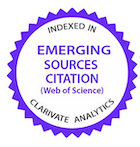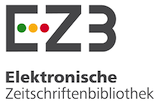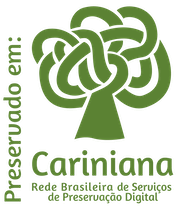Qualidade dos efluentes produzidos na fase de crescimento do camarão-da-amazônia Macrobrachium amazonicum
DOI:
https://doi.org/10.1590/1809-6891v15i219521Palavras-chave:
AquiculturaResumo
Nas últimas décadas, a carcinicultura de água doce foi um dos setores que mais cresceu na aquicultura. Muitas pesquisas têm sido realizadas a fim de buscar metodologias para uma produção sustentável, ou seja, lucrativa e com baixo impacto ambiental. Neste contexto, o presente estudo objetivou analisar a qualidade da água de abastecimento e do efluente gerado na fase de crescimento final do cultivo do camarão-da-amazônia (Macrobrachium amazonicum). Foram analisados 12 viveiros de fundo natural, com fluxo contínuo de água e densidade de estocagem de 40, 60, 80 e 100 juvenis/m2. O delineamento experimental utilizado foi blocos inteiramente casualizados com quatro tratamentos e três repetições. Foram realizadas análises microbiológicas para Escherichia coli e análises físicas e químicas para pH, temperatura, sólidos totais suspensos, nitrogênio total, nitrito, nitrato, demanda bioquímica de oxigênio e demanda química de oxigênio da água de abastecimento e efluentes dos viveiros. Os resultados revelaram que a qualidade do efluente estava de acordo com a legislação vigente e que não ocorreu diferença significativa entre a água de abastecimento e efluente para as variáveis analisadas. Também não ocorreu diferença significativa entre as densidades de estocagem. Concluiu-se que a produção de M. amazonicum nas condições estudadas e a intensificação do cultivo na fase de crescimento final, até a densidade de 100 juvenis/m2, para as variáveis analisadas, apresenta baixo potencial de impacto ambiental.
PALAVRAS-CHAVE: carcinicultura, efluente, impacto ambiental, qualidade de água..
Downloads
Publicado
Como Citar
Edição
Seção
Licença
Copyright (c) 2014 Ciência Animal Brasileira / Brazilian Animal Science

Este trabalho está licenciado sob uma licença Creative Commons Attribution 4.0 International License.
Autores que publicam nesta revista concordam com os seguintes termos:
- Autores mantém os direitos autorais e concedem à revista o direito de primeira publicação, com o trabalho simultaneamente licenciado sob a Licença Creative Commons Attribution que permite o compartilhamento do trabalho com reconhecimento da autoria e publicação inicial nesta revista.
- Autores têm autorização para assumir contratos adicionais separadamente, para distribuição não-exclusiva da versão do trabalho publicada nesta revista (ex.: publicar em repositório institucional ou como capítulo de livro), com reconhecimento de autoria e publicação inicial nesta revista.
- Autores têm permissão e são estimulados a publicar e distribuir seu trabalho online (ex.: em repositórios institucionais ou na sua página pessoal) a qualquer ponto antes ou durante o processo editorial, já que isso pode gerar alterações produtivas, bem como aumentar o impacto e a citação do trabalho publicado (Veja O Efeito do Acesso Livre).






























